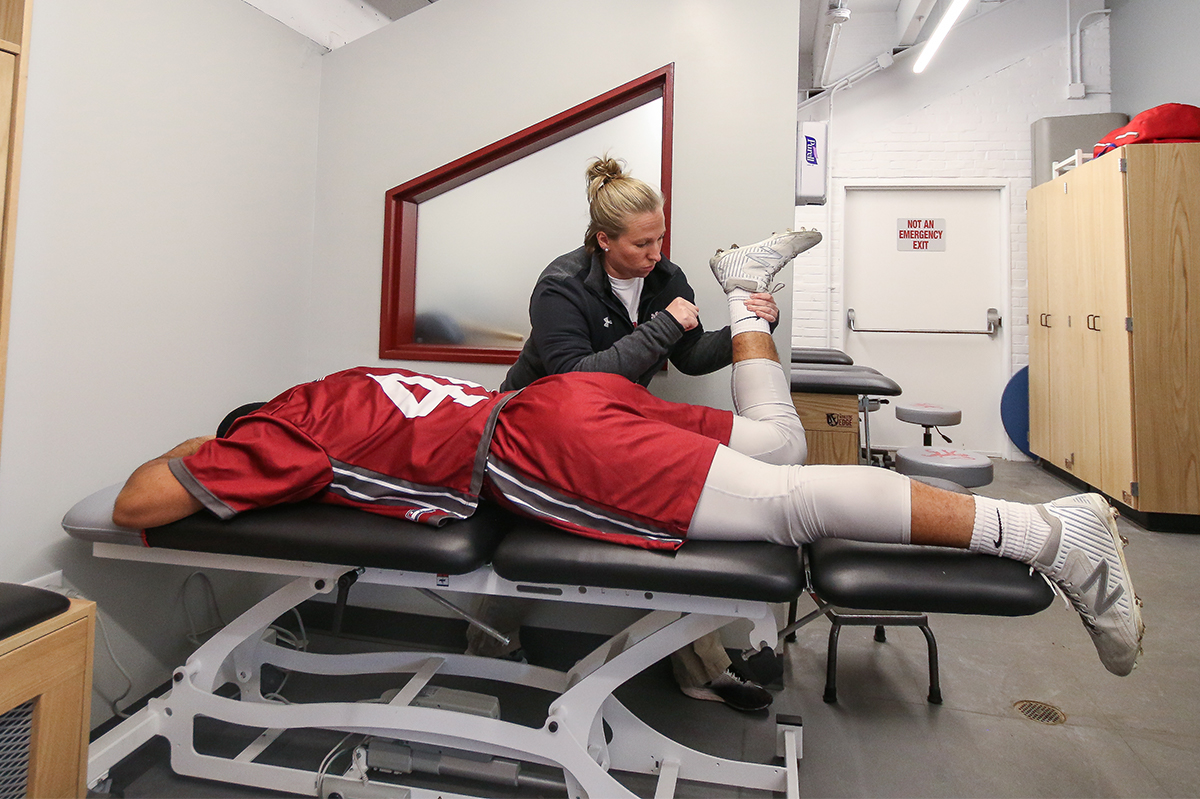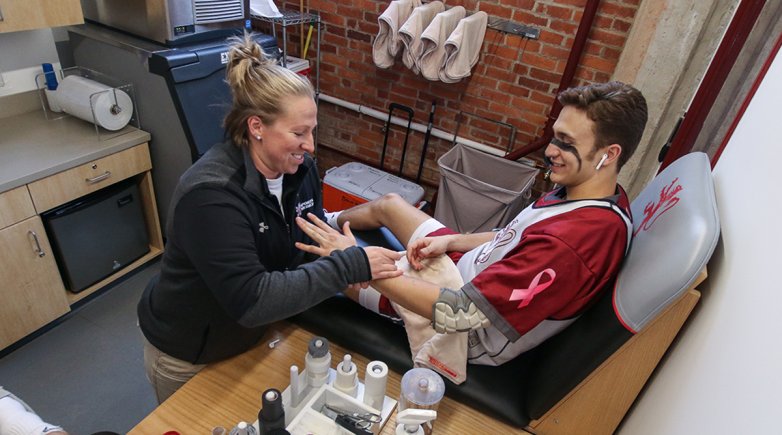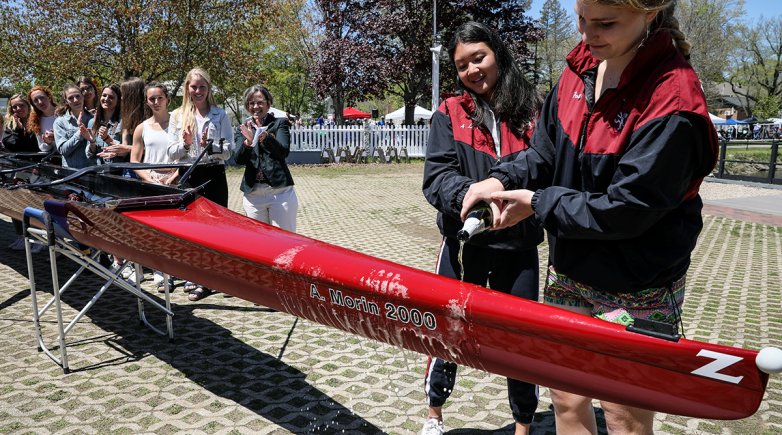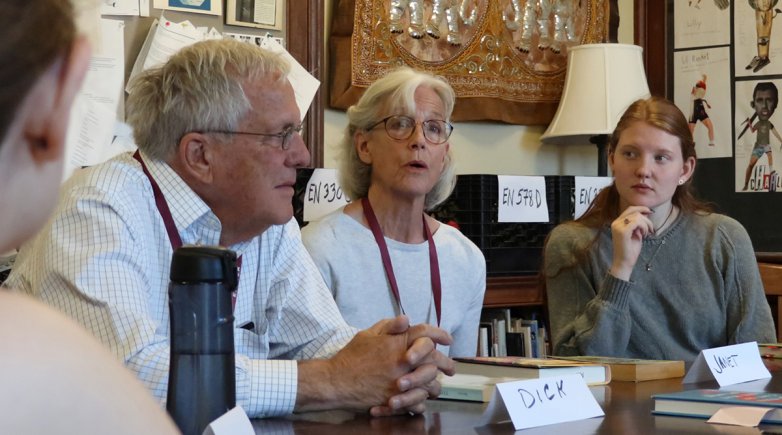Exeter trainers get in the game
Bravo Family gift offers athletes care right at the field.
Associate Athletic Trainer Katie McFadden gets to work in the new Bravo room.
A trip to the training room for an Exeter athlete playing at Phelps Stadium or on the surrounding fields used to be an over-the-river-and-through-the-woods journey back to Love Gym. Now, Big Red can stay put.
Thanks to a generous gift, the Bravo Family Athletic Training Room offers students and trainers an on-site facility to prevent and treat injuries where they happen.
“We have a space we can care for our students through all phases of their injury, from immediate evaluation to rehabilitation,” says Adam Hernandez, director of athletic training. “Adding another clinical space to care for students has allowed us to shift from a reactive model of health care to a preventative model in which we are able to meet students where they are out at the playing fields.”

Just completing its first full school year of operation beneath the Phelps Stadium grandstand, the Bravo Room serves all Exeter athletes but specifically those in close proximity: football, field hockey, soccer, lacrosse and cross-country. Treatment options include ultrasound, electric stimulation, hot-and-cold therapy and early phase rehabilitation through a variety of weights, foam rollers and mobility tools.
The new training room is a gift of Steven and Catherine Bravo P’18, whose son A.J. Bravo ’18 captained the boys varsity lacrosse team. The room is dedicated to Steven’s and Catherine’s fathers.
“It is a passion of ours that athletes be kept safe while engaging in any sport,” Catherine Bravo says. “We are both health-care professionals who saw a need for the expeditious care of Exeter athletes on or near the fields where they compete. When the opportunity was presented to fill that need, we felt that all Exeter athletes could benefit from such a facility.”
Editor's note: This article first appeared in the summer 2019 issue of The Exeter Bulletin.



